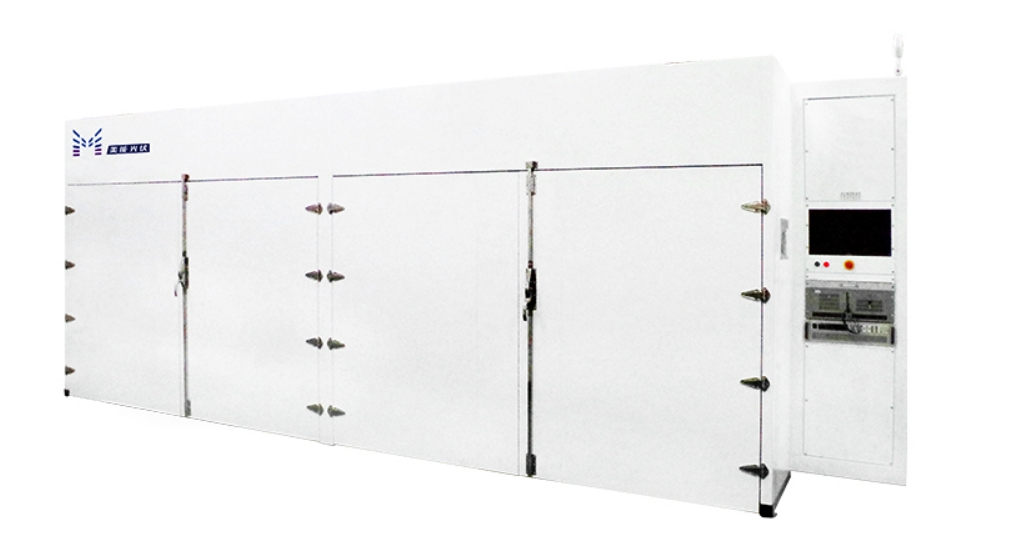
Quantum Efficiency Tester
PL/EL Integrated System
PV-Reflectumeter
3D Confocal Microscope
In-Line Four Point Probe Tester
Four Point Probe Tester
In-Line Thin Film Thickness Tester
Raman Spectrometer
FTIR Spectrometer
Spectrophotometer
Automatic Spectroscopic Ellipsometer
Contact Resistance Tester
Ultra depth of field 3D microscope
Auto Visual Tester
VMM PV Vision Measuring Machine
Solar Cell Horizontal Tensile Tester
Steady State Solar Simulator for Solar Cell
Solar Cell UV Aging Test Chamber
Solar Cell Comprehensive Tensile Tester
Visual Inspection Tester
Wet Leakage Current Tester
PV Module EL Tester
PV Module UV Preconditioning Chamber
Steady State Solar Simulator for PV Module
Current Continuous Monitor
Potential Induced Degradation Test
Bypass Diode Tester
LeTID Test System
Reverse Current Overload Tester
Impulse Voltage Tester
Hipot Insulation Tester
Ground Continuity Tester
Hipot Insulation Ground Tester
Damp Heat Test Chamber
Humidity Freeze Test
Thermal Cycle Test Chamber
Dynamic Mechanical Load Tester
Static Mechanical Load Tester
Hail Impact Tester
Robustness of Termination Tester
Module Breakage Tester
Cut Susceptibility Tester
Peel Shear Strength Tester
Universal Testing Machine (Single-arm)
Universal Testing Machine (Double-arm)
Glass Transmittance Tester
Acetic Acid Test Chamber
EVA Degree of Crosslinking Test System
Junction Box Comprehensive Tester
Drop ball tester
Semi-automatic scanning four-probe tester
Stylus Profilometer
Maximum Power Point Tracker
Perovskite Glass Transmittance Tester
Perovskite P1 Laser Scribing Multifunctional Testing Machine
Perovskite Online PL Tester
Perovskite Online Sheet Resistance Tester
Online Perovskite Film Thickness Tester
Perovskite Process Inspection Workstation
Portable IV Curve Tester
Portable EL Tester
Portable Thermal Imaging Tester
Solar Module Multi-Channel Testing System
PV Inverter Power Quality Tester
Drone EL Tester
IV Tester
IVEL Cell Sorting Machine
In-depth Measurement of Photovoltaic Modules Power
Date : 8 October 2023Views : 820
With the development of the photovoltaic industry, the performance and reliability of photovoltaic modules have received widespread attention and deep attention. The module power test of photovoltaic modules is an important means to evaluate whether the performance of photovoltaic modules meets industrial standards. It can accurately measure the output power of photovoltaic modules and provide important basis for the practical application and maintenance of photovoltaic power generation systems.Millennial solar simulator produced by "Millennial Solar" can measure the power of photovoltaic modules to determine whether they meet industrial standards, thereby helping module manufacturers produce qualified photovoltaic modules.

![]()
Photovoltaic module power testing principle
The power testing principle of photovoltaic modules is mainly based on the photovoltaic effect and current and voltage characteristics. The photovoltaic effect means that when light irradiates the surface of the photovoltaic module, the energy of photons is converted into the energy of electrons, thereby generating electric current. The output power of photovoltaic modules is related to factors such as light intensity, spectral distribution, and temperature.

In testing the power of photovoltaic modules, Millennial solar simulator produced by "Millennial Solar" can be used to simulate sunlight exposure and calculate the output power by measuring the current and voltage of the photovoltaic modules. The light generated by the solar simulator has a spectral distribution similar to that of sunlight and can provide stable light intensity.
![]()
Photovoltaic module power test method
The power of photovoltaic modules can be tested in an indoor laboratory environment. Indoor testing can control conditions such as light intensity and temperature to make the test results more accurate and reliable. In indoor testing, Millennial solar simulator can be used to simulate sunlight and illuminate the surface of the photovoltaic module with simulated sunlight to quickly and accurately evaluate the performance of the photovoltaic module and ensure that its quality meets industrial standards.
![]()
Photovoltaic module power test
During the measurement process, it is necessary to control the temperature. The temperature of the photovoltaic module has a great impact on the power test results, which will bias the measurement data. In photovoltaic module power testing, accurate measurement of light intensity is also very important. Therefore, regular calibration using a solar simulator is required to ensure the accuracy of light intensity.
When performing photovoltaic module power testing, the test needs to be carried out according to the environment, and the pertinence of the test will be different in different environments; testing outdoors can reflect the performance of the module in the actual working environment, indoor testing can provide more accurate and reliable test results.
![]()
Millennial Solar Simulator

E-mail: market@millennialsolar.cn
Millennial solar simulator uses metal halide lamps that can simulate the full sunlight spectrum to reproduce destructive light waves that exist in different environments. It can provide testing and simulation in different environments for photovoltaic product development and quality assurance.It can also meet the stability test stipulated in the exposure, maximum power point, and hot spot test provisions of the IEC61215 test standard, and the spot area can reach 2800*2500mm, and the spectrum meets the BBA standard.
●Can realize local temperature control, the temperature control range is 60℃±10℃
●Irradiation area reaches 5200mm*4200mm
●Irradiance range can reach 700~1300w/m^-1
●The irradiation intensity of each light source or the overall irradiation intensity can be manually adjusted
●High spectrum matching, strong uniformity and stability of irradiation
In order to determine whether the performance of photovoltaic modules meets industrial standards, it is necessary to conduct in-depth measurement of their output power. The Millennial solar simulator owned by "Millennial Solar" can detect the output power of solar modules through a solar simulation system.This helps module manufacturers make reasonable judgments on module quality and help them produce efficient solar modules!

































































